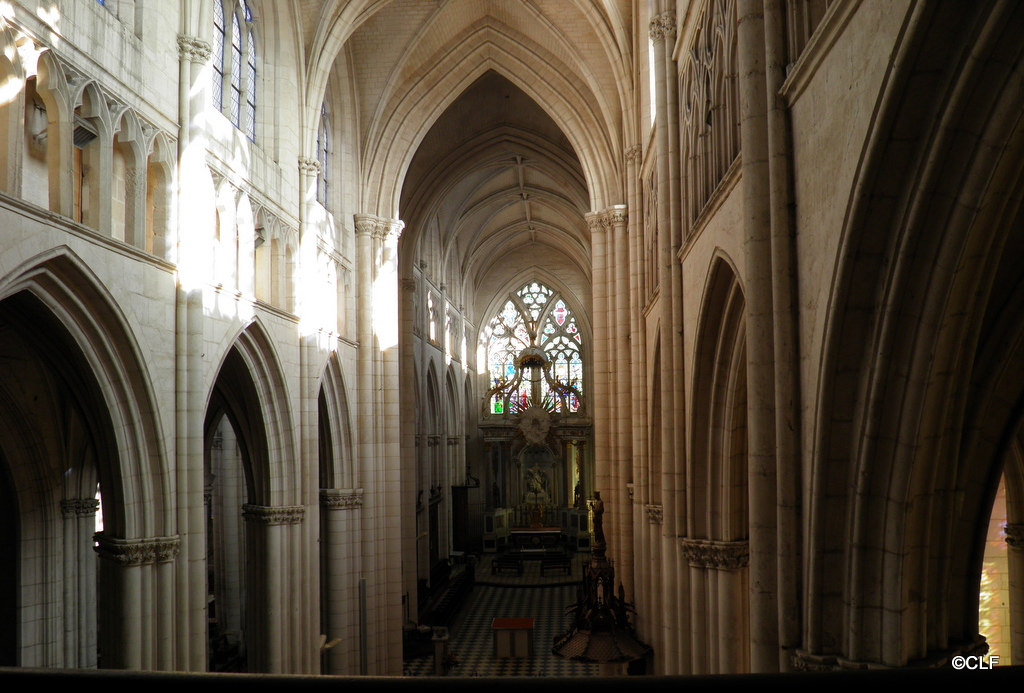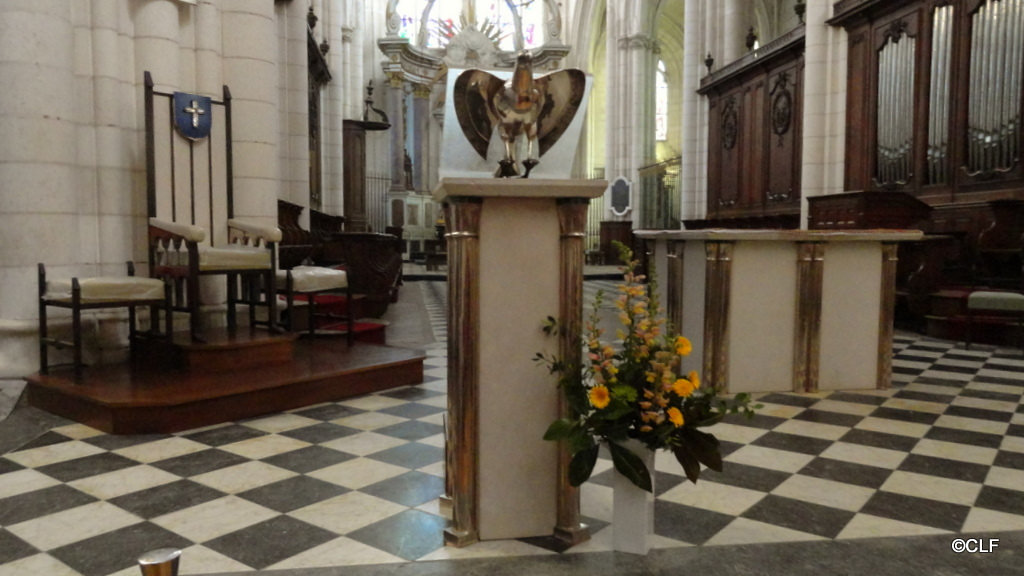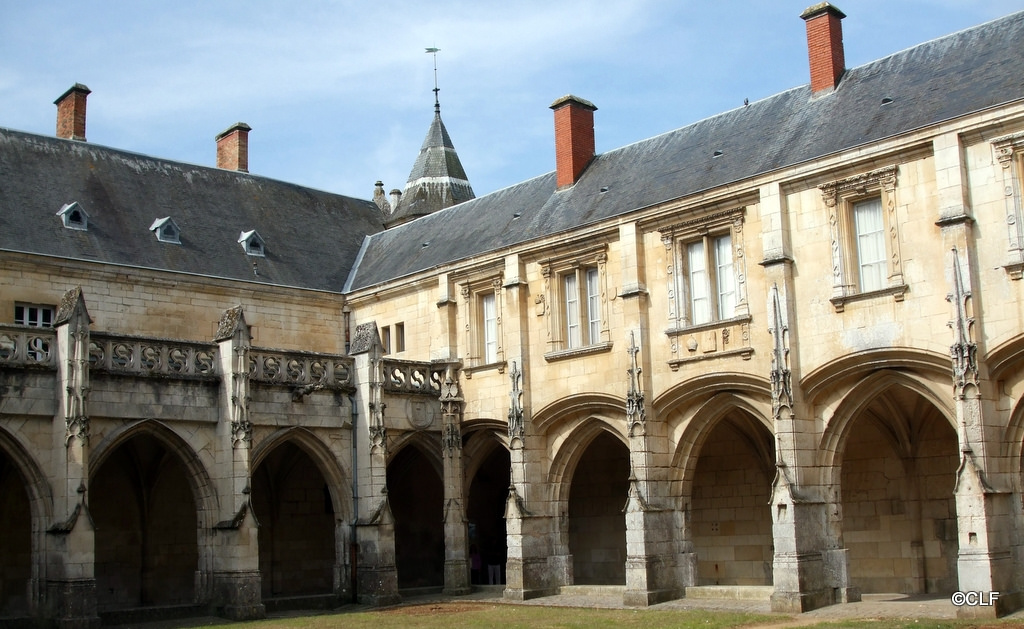CATHÉDRALE NOTRE-DAME-DE-L’ASSOMPTION
Registered and listed sites
Description
Although it has been the seat of the diocese since 1317, Luçon cathedral has a much longer history. Around the year 675, a priory dependent on the abbey of Saint-Philbert de Noirmoutier is mentioned. Although religious life was disrupted by the Norman invasions, it was around the year 1000 and then the XIIᵉ century that Luçon began to find its stability. In fact, it was in 1040 that the priory of Luçon was elevated to the rank of abbey.
Restored following the ravages of the Hundred Years' War and the Wars of Religion, Luçon cathedral boasts an astonishing classical façade designed by Poitou architect François Leduc at the dawn of the 18th century. The Gothic spire, already designed by François Leduc, was rebuilt in the 19th century and reaches a height of 85 metres. From the Romanesque period, the left transept is visible to all, but there are also many sculpted elements hidden in the attic. The cathedral was extensively transformed in the 14th and 15th centuries from its 12th-century foundations.
Like the cathedral, the 16th-century cloister is open to the public. Its furnishings include the painted wooden pulpit of Bishop Pierre Nivelle (17th century), the 18th-century choir and the Cavaillé-Coll/Schwenkedel organ, the case of which was designed by Émile Boeswillwald, one of the leading religious architects of the 19th century. In the right transept, the public can admire a Descent from the Cross painted by the 17th-century French master, Lubin Baugin. More recently, the furniture in the celebration choir was entrusted to the goldsmith and contemporary artist Goudji.
- Groups accepted
- Types : historic site and monument
Activities
- Temporary exhibitions
Location
Visit
- Information board languages : French
Individual
Groups
Comfort / services
Prices / opening times
Free
Opening
Open all year round






